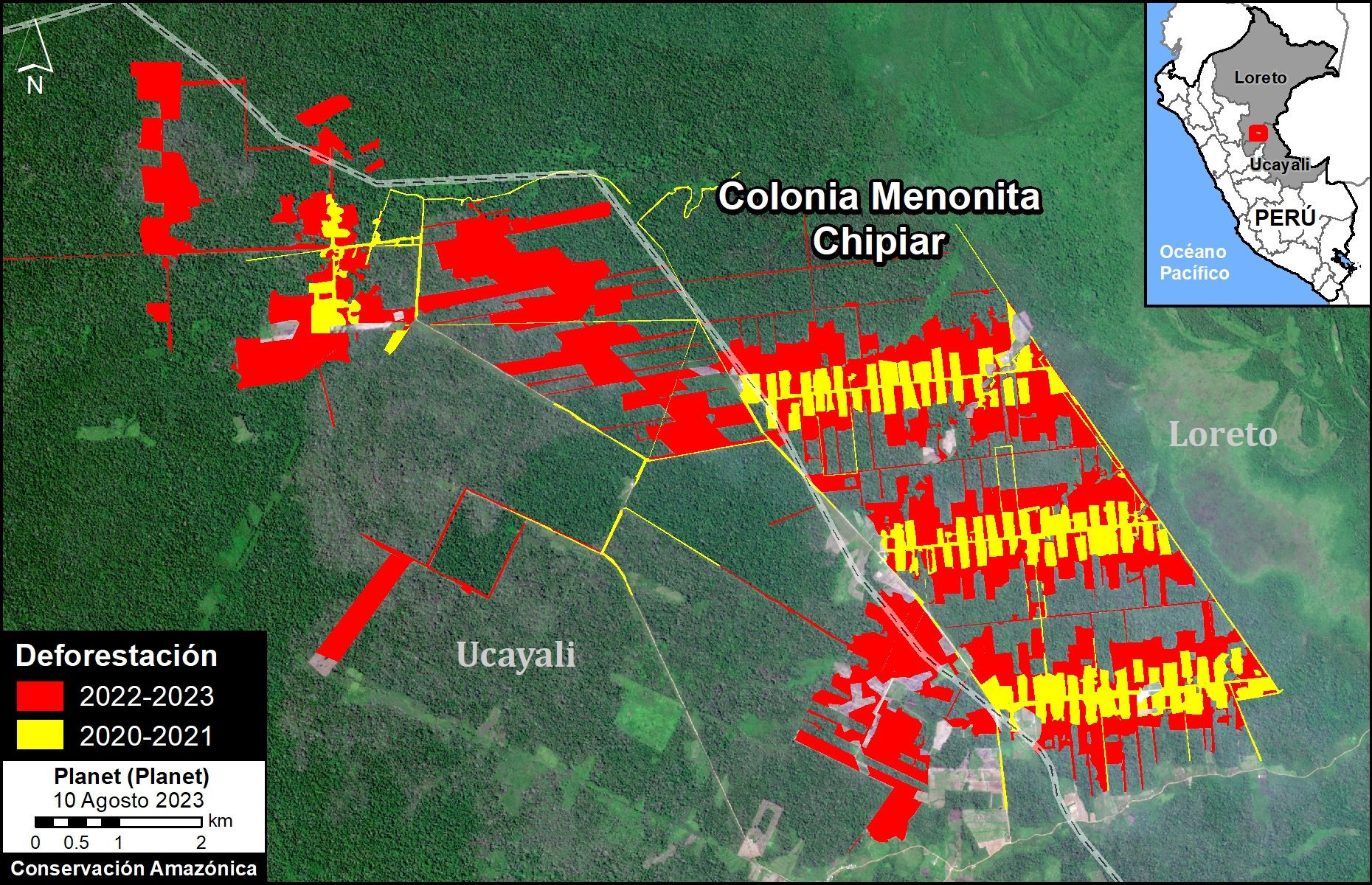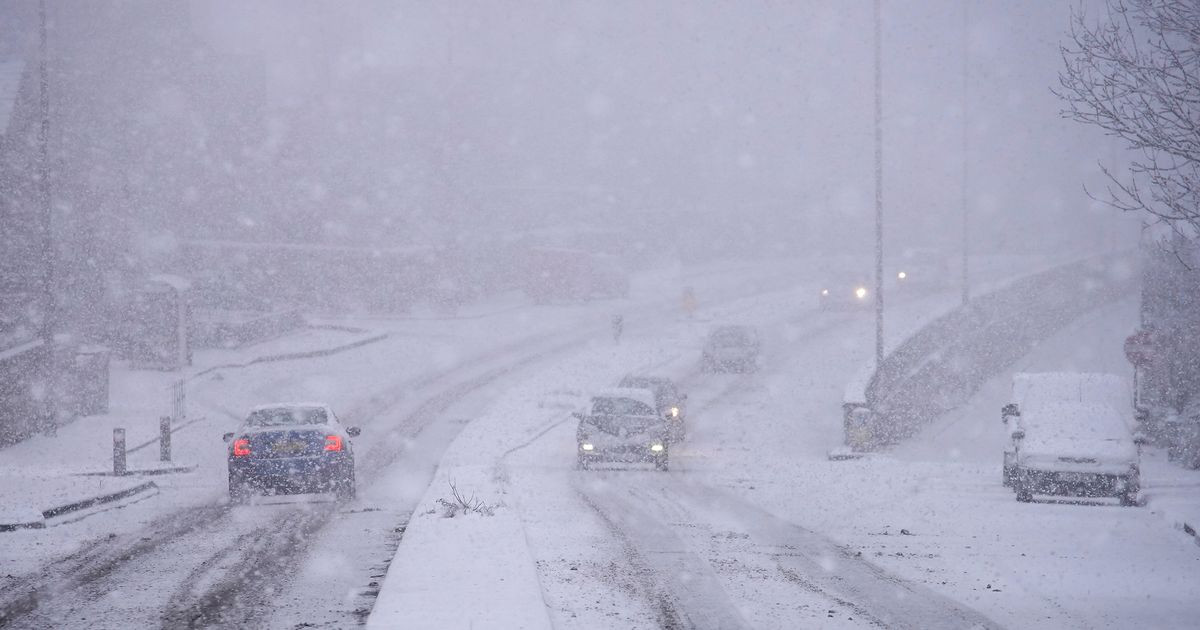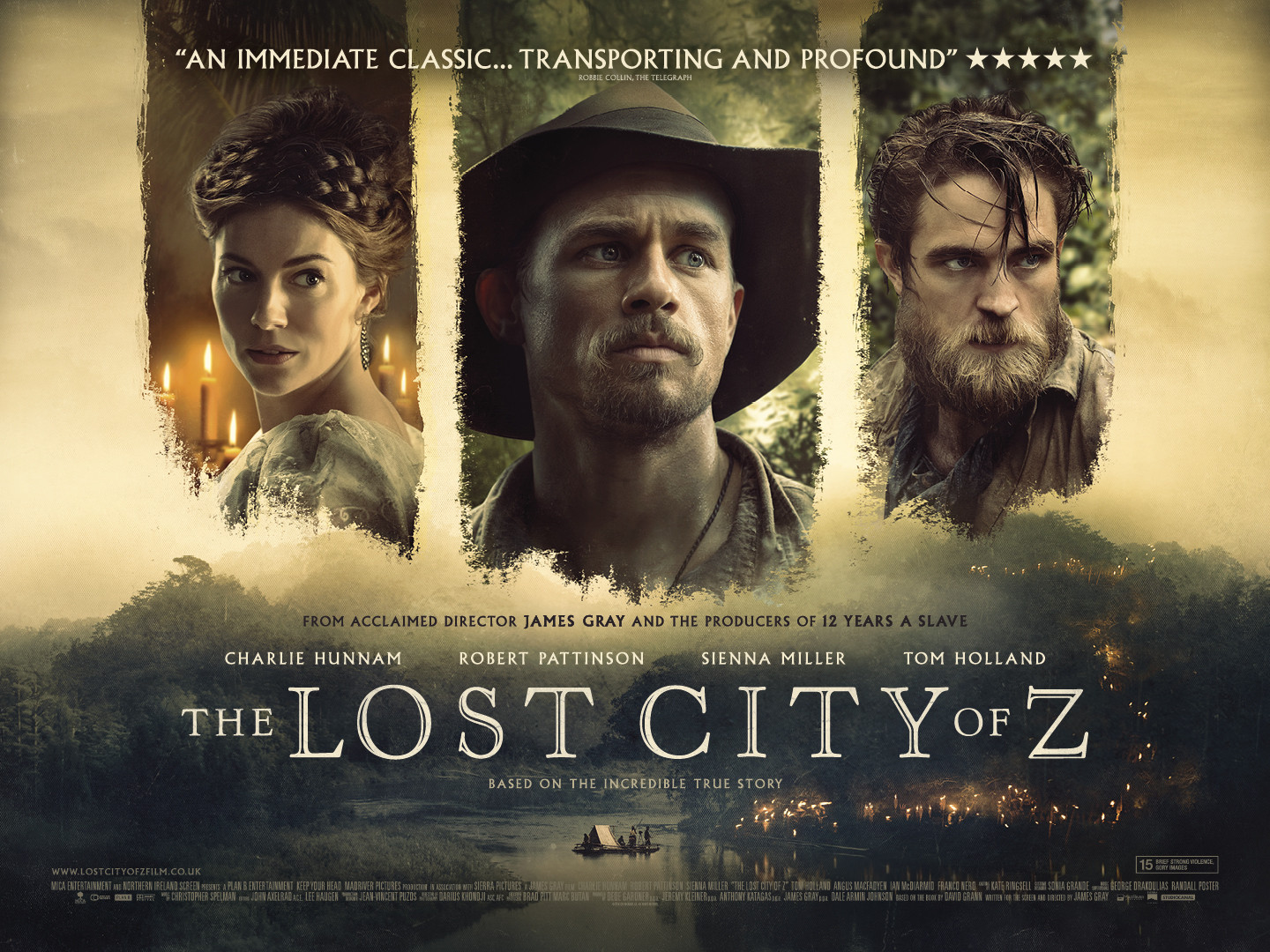After weeks of living in jungle tents, the handful of Mennonite families trying to make a new home deep in the Peruvian Amazon began to despair. Wasps attacked as they tried to clear forest. Heavy rains turned the road to their camp to mud. Running low on supplies, some wanted to turn back. Instead, they worked harder and eventually carved out an enclave. “There’s a place here where I wanted to live, so we came and opened part of it up,” recalled Wilhelm Thiessen, a Mennonite farmer. “That’s what everyone did to have a place to live.”
Today, seven years later, the cluster of homesteads is now a thriving colony, Wanderland, home to roughly 150 families, a church — which doubles as a school — and a cheese-processing facility. It is one of a string of Mennonite settlements that have taken root throughout the Amazon, turning forest into thriving farms but also raising concerns among environmentalists about deforestation of a jungle already under threat from industries such as cattle ranching and illegal gold mining.
The History of Mennonite Migration to Latin America
Mennonite communities have come under official scrutiny, as well, including in Peru, where authorities are investigating several, accusing them of clearing forest without required permits. The colonies deny wrongdoing. Mennonites first started migrating to Latin America from Canada about a century ago, after the country ended their exemptions from education requirements and military service. The president of Mexico at the time, Álvaro Obregón, eager to consolidate rebellious northern regions following the Mexican Revolution, gave Mennonites uncultivated land and guarantees that they could live as they wished. In subsequent decades, other Latin American countries, seeking to expand their agricultural frontiers, made similar invitations.
Today, more than 200 Mennonite colonies in nine countries in Latin America occupy some 9.64 million acres, an area larger than the Netherlands, where their denomination first emerged, according to a 2021 study by researchers at McGill University in Montreal. Bolivia has seen the fastest growth of any Latin American country and now has 120 Mennonite colonies, while in the past decade a half dozen settlements, including Wanderland, have emerged in Peru, according to analysts. Mennonites have also sought land in Suriname, a small South American country rich in pristine forests, setting off protests from Indigenous groups and Maroons, the descendants of enslaved people. “They’re basically trying to find the last places on Earth that still have these just huge, continuous areas that can support their lifestyle, and that just happens to be forested areas in the Amazon,” said Matt Finer, a senior research specialist at Amazon Conservation, an environmental nonprofit.
Life in a Mennonite Colony
On the ground, Wanderland looks like a page from the past. Horse-drawn buggies carry passengers along dirt roads. Men in overalls toil in fields stretching behind simple wooden houses. There is no electricity. As night falls, families dine by candlelight after giving grace in Plautdietsch, a Germanic dialect spoken almost exclusively among Mennonites in the Americas. Fragments of what was once wild linger. A pet monkey on a front porch. A caged parrot. In one backyard shed, Johan Neufeld, 73, showed off three lowland pacas, a large Amazonian rodent prized for its meat. He caught them in the forest and wants to try to breed them.
Wanderland is an “Old Colony” settlement, made up of Mennonites who trace their history to an 18th-century settlement, Chortitza, that is now part of Ukraine. Like other Mennonites, they follow the teachings of a Dutch priest, Menno Simons, who was persecuted during the Reformation for opposing infant baptism and military conscription. Over time, though, living apart from the rest of the world and rejecting new technology became hallmarks of Old Colony faith and culture — and migration a means of preserving them. “Our ancestors thought that if we live far away, in the countryside, there’s more possibility of controlling evil,” said Johan Bueckert, an Old Colony farmer who now lives in Providencia, a colony near Wanderland. “We want to live like they did. We don’t want constant change.”
The Push for New Colonies
As Mennonite colonies in different countries grow more populated and prosperous, the value of nearby land rises — and adhering to an austere farming life, on inexpensive plots, becomes harder. So groups break off to build new settlements. Thiessen helped found Wanderland after moving from Nueva Esperanza, one of Bolivia’s largest Mennonite settlements, because he had children who needed farmland to support their own families. “In Bolivia there are many colonies but almost no land left,” he said. Worldly temptations, particularly smartphones, were also creeping into daily life as Bolivian colonies became more crowded, said Hernan Neufeld, 39, one of Wanderland’s religious leaders, called bishops. “Many brothers and sisters lost their way,” he said. “That’s why we sought a more remote place to see if we can enforce our norms.”
The Impact of Deforestation
Since Mennonite settlements first appeared in the Peruvian Amazon in 2017, they have cleared more than 17,000 acres of forest there, according to an analysis last year by the Monitoring of the Andean Amazon Project (MAAP), which tracks deforestation. That is just a fraction of at least 370,000 acres of forest lost in recent years in Peru, most of it to small-scale farming. The overall deforestation of the Amazon worries many environmentalists since the rainforest absorbs heat-trapping carbon emissions, making it a crucial regulator of the world’s climate. Mennonites interviewed in Wanderland and Providencia said they were not familiar with the term “climate change” or how their practices affect the Amazon. Their leaders acknowledged that parts of the forest were cleared for their colonies but did not believe they had done anything wrong. “Every colony clears the forest a little bit, but it’s very little,” said Peter Dyck, a farmer from Belize and Providencia’s leader. “The forest is big.” The colonies, he added, produce soy, rice and corn to sell in Peru, helping feed people and grow the economy.
A Clash Between Development and Conservation
But the Mennonites have still come under government scrutiny. Peruvian authorities are investigating Wanderland, Providencia and a third Mennonite colony, accusing them of clearing forest without required permits. They are seeking reparations and prison terms for colony leaders, said Jorge Guzman, a lawyer representing Peru’s environment ministry in the case. But the three colonies deny doing anything illegal, arguing that they did not need permits because they already held agricultural titles to the land, issued by the regional government, said Medelu Saldaña, a local politician who advises the colonies. The colonies bought their land, Saldaña added, from a logging company that had already stripped the forest of hardwood trees. But officials and experts said satellite images showed that the colonies had cleared carbon-rich primary forest. And even if parts had been destroyed by logging, the colonies still needed permits and approvals because of the size of their operations. “They want a piece of paper to trump reality,” Guzman said.
Some experts on Mennonites say they are being unfairly targeted given that other activities in the Peruvian Amazon are swallowing up much larger tracts of forest. In Peru, palm and cacao plantations that supply global companies have already replaced large swaths of forest, while drug trafficking and illegal logging and gold mining continue to expand deeper. “I think the Mennonites are kind of the focus of a lot of critique right now because they are a distinct group of people,” said Kennert Giesbrecht, a Canadian and former managing editor of a German-language biweekly read widely in the Mennonite diaspora.
A Growing Presence
Several hours down a river from Wanderland, a new Mennonite village, Salamanca, is forming. Cornelius Niekoley, a farmer and bishop from Mexico, traveled to Peru to assess whether he should buy property for his adult children and their families. “Good price and nice land,” he said. “Not too many rocks. With too many rocks, it’s hard to clear the land.” Born in Belize to a Mexican father and Canadian mother, Niekoley and his children live in a colony in Quintana Roo, in southeastern Mexico, where some of his neighbors have already moved to Salamanca seeking more affordable land. Looking around the village, Niekoley said, “There still aren’t many, but more are going to come.”
The future of the Mennonite communities in the Amazon remains uncertain. While their presence brings economic benefits and a unique cultural element, the potential for environmental damage raises serious concerns. The balancing act between development and conservation will continue to be a challenge in this fragile ecosystem. The colonies have already cleared a substantial amount of forest, and their expansion could lead to further deforestation if not carefully managed. The Peruvian government’s investigation into the colonies is a step towards addressing these concerns, but it remains to be seen whether the legal proceedings will effectively protect the Amazon rainforest.


















